
CURRENT PROJECTS
Ongoing initiatives supporting rural communities across the WRDC Region
The Western Rural Development Center’s Current Projects highlight ongoing initiatives across the WRDC region, led in partnership with students, extension professionals, and Land-Grant Universities. These efforts address issues that matter most to rural communities, from economic development to natural resource stewardship.
Because projects evolve over time, this page offers a snapshot of what’s underway. To learn about ways to get involved, explore our current funding opportunities under Funding/Grants & Fellowships or connect with us on social media.
Graduate Assistance Program
2026 Awardees

SHAHRIN SHAHAB
Ph.D. Candidate
School of Public Policy
Oregon State University
Project Title: Exploring the Influence of Social Vulnerability on Community Resilience to Wildfires in Rural Oregon Communities
Project Summary: Wildfires have become one of the most pressing environmental challenges facing Western rural communities. Current wildfire resilience planning is largely driven by biophysical data and overlooks the critical role of social vulnerability, particularly at the household level, and more specifically for non-homeowners (e.g., renters). This gap results in incomplete or inequitable resilience strategies and leaves many rural and vulnerable populations underprepared and underserved.
This study aims to address this gap by asking: Do household-level social vulnerabilities influence wildfire preparedness and community resilience outcomes in rural Oregon? Specifically, the study will target unexplored rural renters to (1) measure household preparedness for wildfires, (2) identify social vulnerability factors that affect preparedness, and (3) compute community-level resilience scores by integrating preparedness and vulnerability data.
The study builds directly on recently completed data collection funded by the Western Fire Chiefs Association. That data collection focused exclusively on homeowners in rural communities, whereas the proposed project expands this scope by collecting data from renters. The study will be conducted using a quantitative, survey-based design grounded in the hazards-of-place framework. Comparative analyses will reveal disparities within and across rural communities, while resilience scores will identify which communities are more able to withstand and recover from wildfire.
Expected outcomes include the first household-level, survey-based assessment of wildfire preparedness disparities between homeowners and renters in rural Oregon. It will also provide a replicable framework for wildfire resilience research across the Western region. Findings will be shared with wildfire managers through policy briefs and fact sheets, which are expected to inform place-based strategies to reduce vulnerabilities, improve preparedness, and strengthen recovery capacity. Results will also be disseminated broadly via conference presentations and peer-reviewed publications. Potential funding sources to expand the project in the future include the Western Fire Chiefs Association (WFCA) and the USDA Community Wildfire Defense Grant Program.
Project Collaborators: Dr. Lori Cramer and Dr. Erika Wolters.
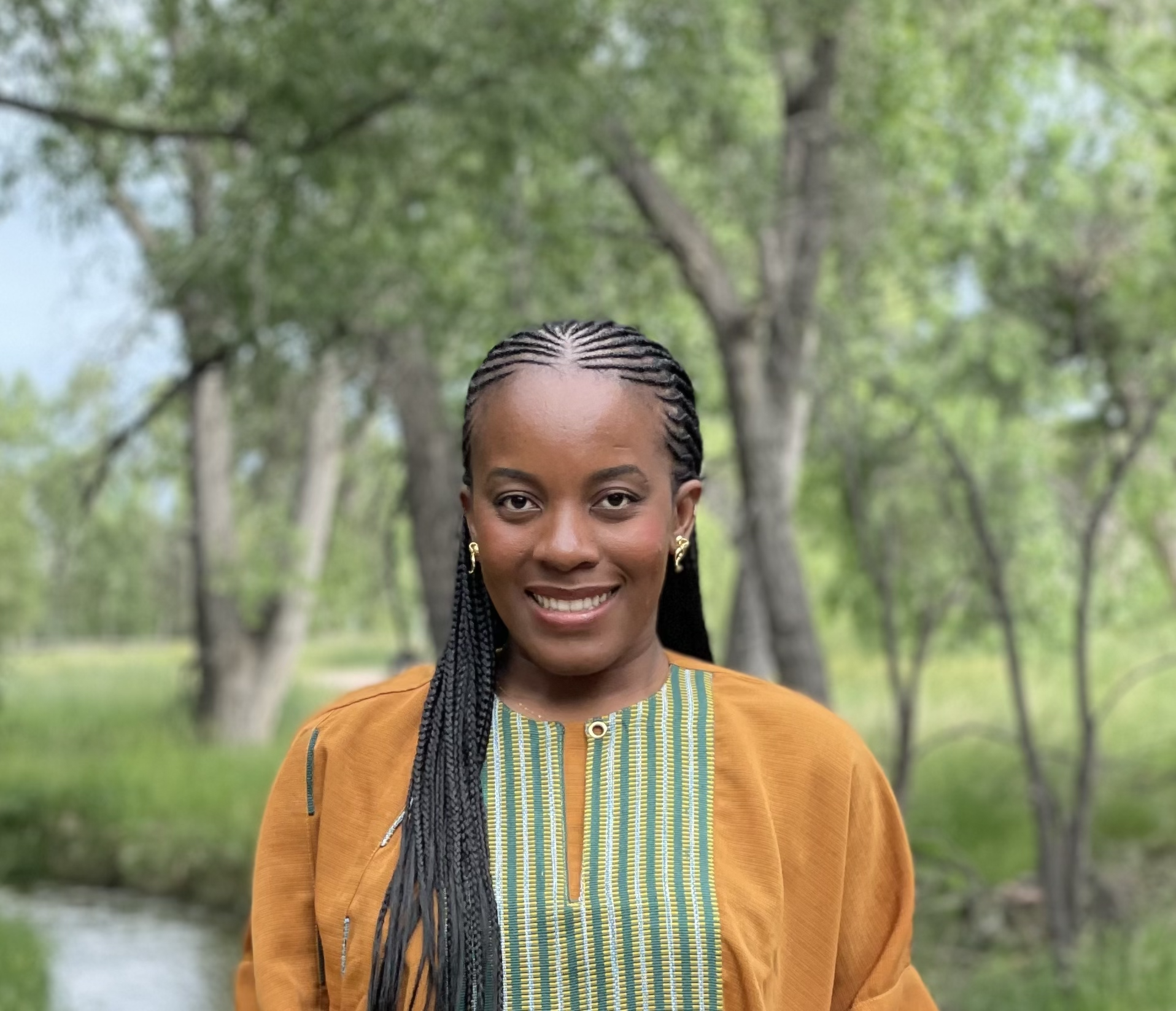
YVETTE UWINEZA
Ph.D. Candidate
Department of Agricultural and Resource Economics
Colorado State University
Project Title: The Economic Cost of Reductions in Irrigated Agricultural Land: A Comparison of Permanent Water Sales and Intermittent Fallowing
Project Summary: Colorado’s Lower Arkansas River Valley has lost considerable irrigated acreage over the last three decades as growing cities purchase agricultural water rights. The reductions in irrigated acreage have reduced farm incomes and raised concerns about the long-term sustainability of rural communities in the area.
Although permanent transfers of water rights have been common, the state has also promoted alternative transfer mechanisms (ATMs), such as rotational fallowing, to share water between cities and farms without completely drying up agricultural land. However, there is little evidence on how the economic impacts of ATMs compare to permanent transfers of water rights.
This project addresses that gap by integrating parcel-level data with economic modeling to evaluate how irrigation reductions affect both farm profitability and the regional economy. Using data from OpenET, parcels will be classified as irrigated, permanently dry, or intermittently irrigated. Profitability estimates will then be linked to an IMPLAN model to simulate changes in employment, household income, and tax revenues under both permanent sales of water rights and rotational fallowing.
These findings will help policymakers, water managers, and local stakeholders better understand the trade-offs of different water transfer mechanisms. The results will be shared through stakeholder meetings, academic presentations, and a peer-reviewed publication. The project will also lay the foundation for future proposals to programs such as USDA NIFA’s Agriculture and Food Research Initiative (AFRI) and the Colorado Water Conservation Board’s Alternative Transfer Methods Grant Program.
Project Collaborators: Dr. Jordan Suter and Dr. Rebecca Hill
Fellow Projects
2026 Awardees
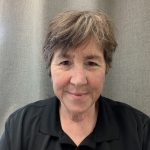
LAURIE WAYNE
Community Nutrition, Health, and Food Systems Advisor
University of California Agriculture and Natural Resources
Project Title: Understanding Barriers, Habits, and Attitudes Influencing SNAP benefits usage in Rural Northern California: a community-engaged participatory study
Project Summary: This project asks: Why do Supplemental Nutrition Assistance Program (SNAP/CalFresh) beneficiaries in Modoc, Lassen, and Siskiyou Counties rarely spend their benefits on locally produced foods, despite the presence of local outlets that accept SNAP? Although almost $1 million in SNAP benefits flow into the three subject rural counties monthly, local purchases represent just a small fraction of the benefits used. Understanding this disconnect is critical for strengthening rural food systems and economies.
The project will use a community-based qualitative design with focus groups made up of SNAP recipients and semi-structured interviews with stakeholders. About 60 SNAP diverse participants and 15 local stakeholders (grocers, market managers, SNAP outreach staff, community leaders) will be recruited from across the region. Focus groups will explore beneficiaries’ perceptions, habits, and social norms around SNAP spending and engage participants in co-developing proposals to optimize local SNAP spending. Stakeholder interviews will examine structural and logistical barriers faced by local retailers, gathering input on existing and potential strategies for overcoming these barriers. Data will be recorded, transcribed, and thematically analyzed, with member-checking to validate findings. Results will be synthesized into a regional report.
This approach is innovative in centering SNAP users’ lived experiences—rather than only stakeholder assumptions or observations—and pairing these insights with operational perspectives to identify both demand- and supply-side barriers. The participatory design also ensures recommendations are grounded in local realities and supported by the community, increasing the likelihood of adoption.
Results will be shared through community listening sessions, stakeholder briefings, Extension networks, and open-access publications, and will be presented at academic conferences. Future funding will be sought from USDA’s GusNIP and FINI programs, state CalFresh Healthy Living funds, and public and private funders focused on food systems and rural development, to pilot the recommended interventions and expand this model across rural western states.
Multi-State Projects
2026 Awardees
Institutions: Oregon State University, Washington State University, Colorado State University
Project Title: Weathering the Storm: Supporting Rural Agricultural Communities in Navigating Environmental Stress and Grief
Principal Investigator
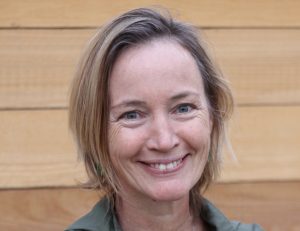
MAUD POWELL
Professor; Small Farms Program
Oregon State University
Project Team
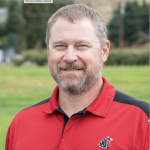
CHAD KRUGER
Director
Center for Sustaining Agriculture and Natural Resources; Institute for Northwest Energy Futures
Washington State University
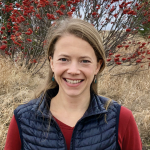
TEAL POTTER
Research Associate
Center for Sustaining Agriculture and Natural Resources
Washington State University

ADAM SNITKER
Graduate Research Assistant
Department of Sociology
Colorado State University
Project Summary: The rapid acceleration of ecological change and increase in severity of weather events is bringing new challenges to rural, agricultural communities, not only in terms of drought and wildfire, but also mental health and emotional well-being. Agricultural professionals who support farmers are also experiencing increasing demands to provide support in the wake of extreme weather events. Research shows that people who increase their awareness of and talk about stress and grief related to ecological change are more resilient, likely to take action, and have a better quality of life.
Oregon State University’s Building Resilience in Farmers and Ranchers project designed an intervention in the form of a 75-minute workshop to address ecological stress as well as a train-the-trainer program. Workshop survey feedback indicates a high degree of short-term benefits among both producers and agricultural professionals.
This project will extend the reach of the curricula beyond Oregon to Washington and Colorado. The workshop will be offered in three states two times each during the grant period, with approximately 15 producers in each workshop. Ninety producers will have access to information about mental and physical health impacts of ecological changes and learn about established resilience practices. The train-the-trainer program will be offered two times, benefiting a total of 40 agricultural professionals.
The project’s research component will explore whether and how the curricula result in mid-range behavior and attitude changes and specifically, adoption of resilience practices. Three months after the completion of the workshops, 20 producers will be interviewed to discover behavior and/or attitude changes.
Findings will be disseminated through the publication of a peer-reviewed journal article and presentations at two regional agricultural conferences.
Other potential funding sources include a Western SARE Professional Development Grant and grants from the Western Center for Risk Management Grant.
